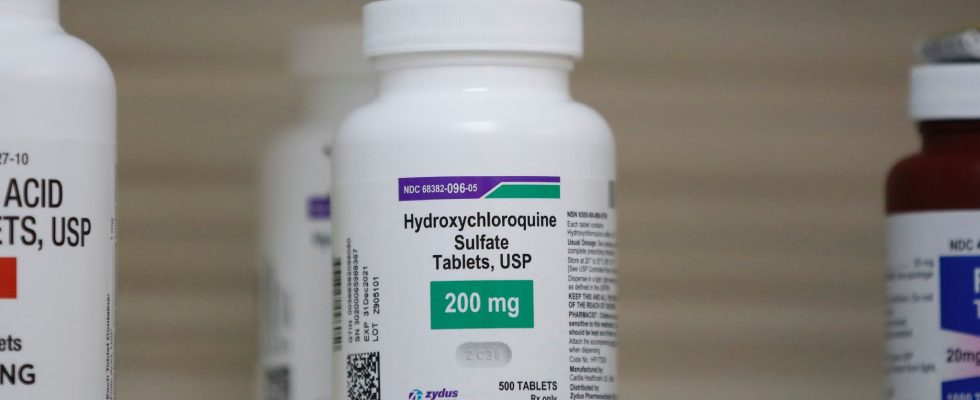The National Medicines Safety Agency (ANSM) reported on Wednesday April 5 a slight risk of fetal malformation associated with taking, at high doses and when pregnant, hydroxychloroquine, a treatment known to have caused the subject to speculation about its supposed effectiveness against Covid-19. “Children exposed to hydroxychloroquine during their mother’s pregnancy are at higher risk of severe birth defects,” the ANSM said in a statement.
The agency is based on a study published in February in the American Journal of Obstetrics and Gynecology. Carried out by comparing the outcome of around 2,000 pregnancies on hydroxychloroquine to a group of 19,000 women who did not take this treatment, it concludes that there is a risk of malformations in the child. However, this risk remains very limited (1.33 higher when taking the drug) and only proven when hydroxychloroquine is taken at high doses, at least 400 mg per day.
No effectiveness against Covid
Mainly used in rheumatology for its anti-inflammatory properties or in the prevention of malaria, the treatment, marketed in France via the drug Plaquenil, is first known to the general public for having been defended by certain researchers, such as the infectious disease specialist Didier Raoult , as a treatment for Covid. However, no research has convincingly proven its effectiveness.
The ANSM, as such, also recalled on Wednesday that hydroxychloroquine cannot be considered a treatment for Covid, any more than other widely discredited leads such as azithromycin and ivermectin. “The data published to date in adults continue to show that these molecules have no clinical benefit in the management of this pathology”, underlines the ANSM. “Furthermore, their use exposes patients to potential adverse effects which can be serious.”
